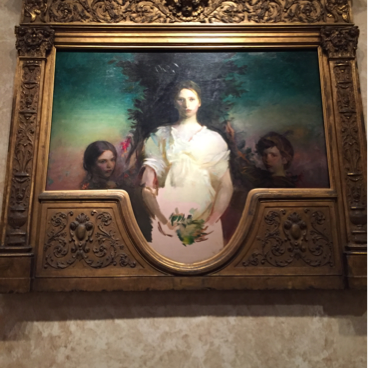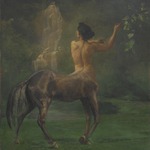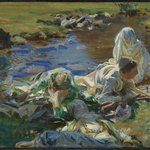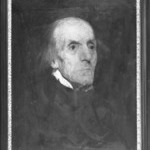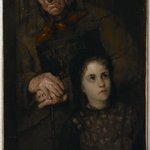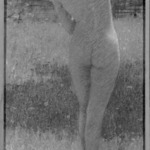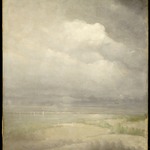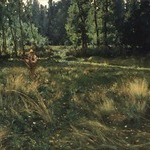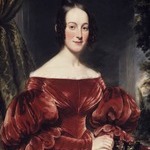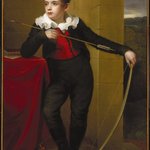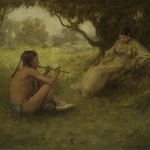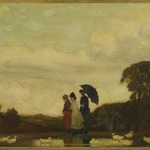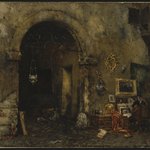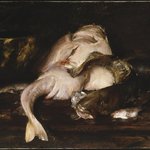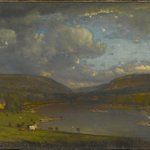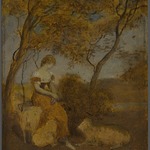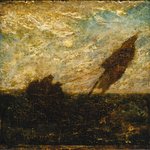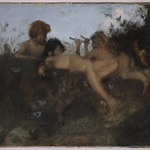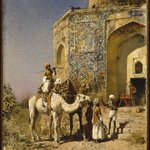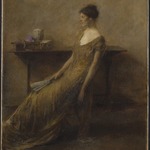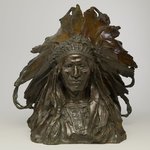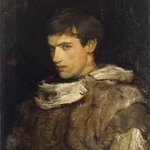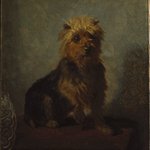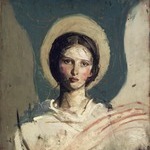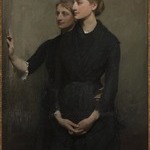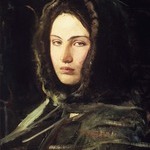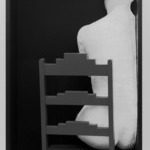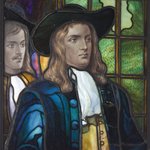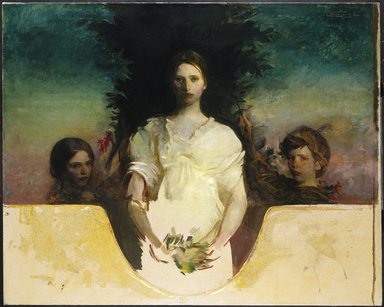
My Children
Abbott H. Thayer
American Art
Although Abbott Handerson Thayer's children (Gladys, Mary, and Gerald, left to right) modeled for this painting, it does not look like a standard portrait, and the children's actual identities may have little to do with Thayer's overall aims for the work. The painting was not intended to convey a particular religious content, but its composition and elaborate frame recall Italian Renaissance altarpieces showing the Virgin Mary with saints. Other elements such as the laurel wreath in Mary's hands, her classicized drapery, and the phantom wings formed by the contours of the foliage against the sky align her with the ancient Greek goddess Athena-Nike (a winged figure representing victory). In the end, this image, so filled with allusions to the art of the past, presents Thayer's vision of the human spirit at its noblest: the expression of love, strength, and beauty embodied in the ideal and eternal feminine.



